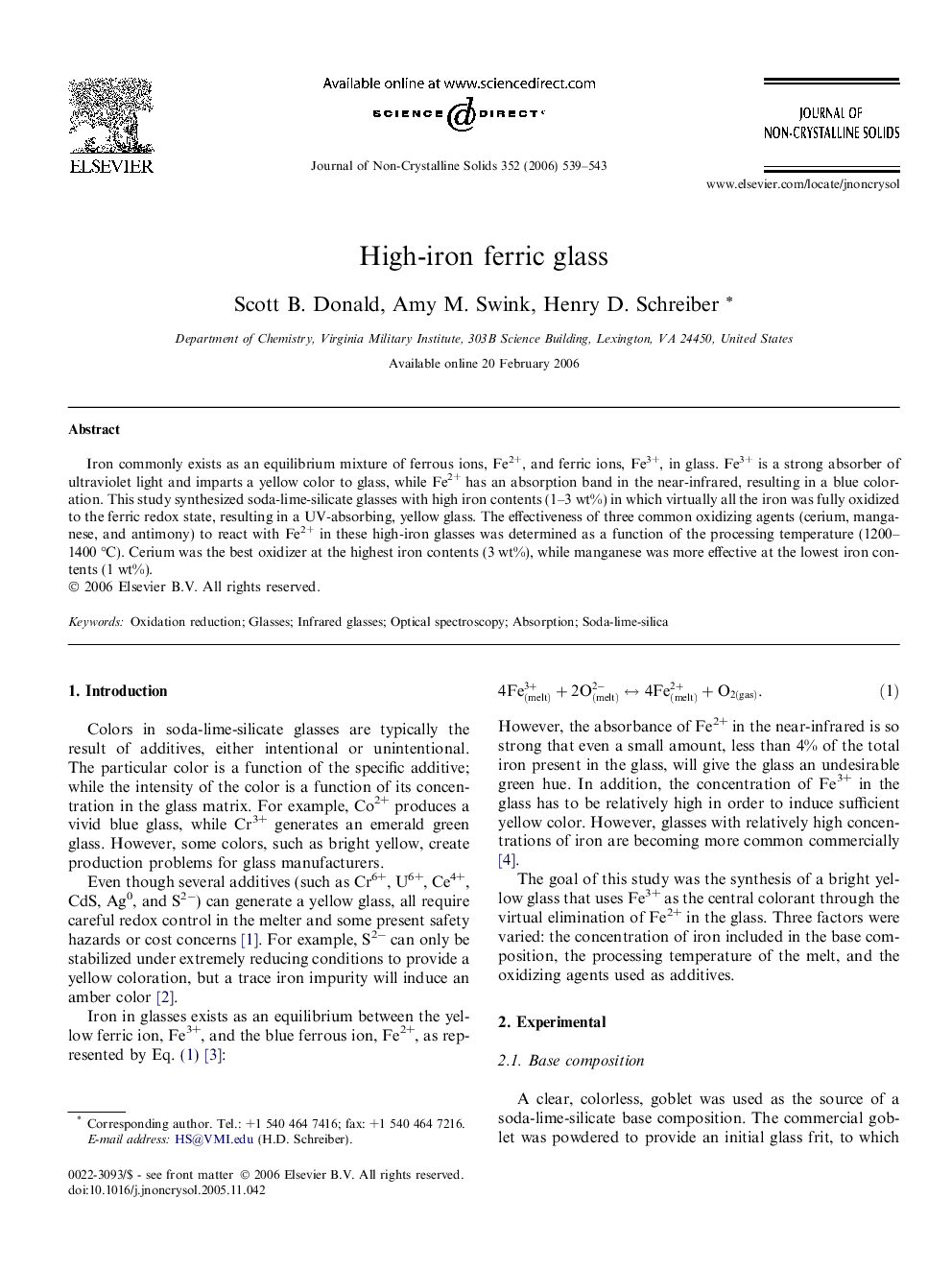| Article ID | Journal | Published Year | Pages | File Type |
|---|---|---|---|---|
| 1486498 | Journal of Non-Crystalline Solids | 2006 | 5 Pages |
Iron commonly exists as an equilibrium mixture of ferrous ions, Fe2+, and ferric ions, Fe3+, in glass. Fe3+ is a strong absorber of ultraviolet light and imparts a yellow color to glass, while Fe2+ has an absorption band in the near-infrared, resulting in a blue coloration. This study synthesized soda-lime-silicate glasses with high iron contents (1–3 wt%) in which virtually all the iron was fully oxidized to the ferric redox state, resulting in a UV-absorbing, yellow glass. The effectiveness of three common oxidizing agents (cerium, manganese, and antimony) to react with Fe2+ in these high-iron glasses was determined as a function of the processing temperature (1200–1400 °C). Cerium was the best oxidizer at the highest iron contents (3 wt%), while manganese was more effective at the lowest iron contents (1 wt%).
